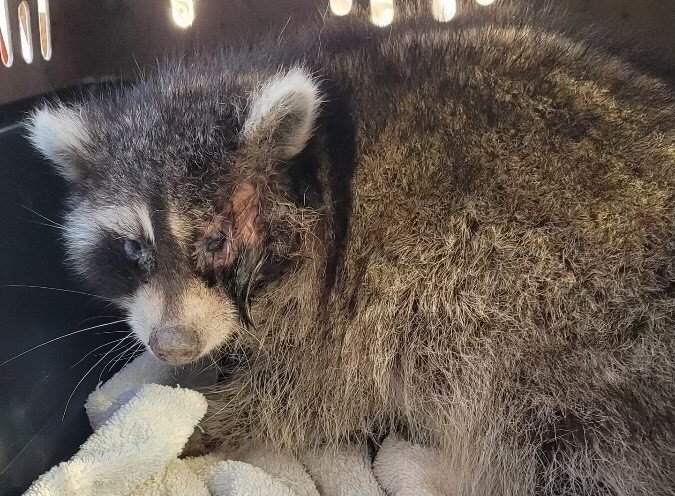Canine Distemper Rising in East End Raccoons

According to the National Institution of Health, canine distemper originated as a pandemic pathogen in South America, but has now made its way across the world, and therefore to Long Island.
Considered lethal and incurable, canine distemper is a neurological disease and viral infection that infects raccoons, foxes, coyotes, dogs, and any species under canine genus, however according to Adrienne Gillespie, hospital supervisor and licensed wildlife rehabilitator of the Evelyn Alexander Wildlife Rescue Center’s (EAWRC), “We’ve been seeing a massive spike in distemper with raccoons on Long Island, more than anywhere else in New York.”
EAWRC reports show that from the start of the year to this month, 250 raccoons were admitted due to canine distemper, including 30 this month alone. Of these, 193 had to be euthanized due to the disease’s severity. Gillespie explains, “By the time these raccoons arrive, it’s often too late for rehabilitation. Quarantining is also challenging due to limited space and the risk it poses to other animals.”
Jessica Chiarello, senior animal care technician and hospital supervisor, adds, “Distemper affects the gastrointestinal, respiratory, and nervous systems, typically starting in the gastrointestinal or respiratory systems before advancing to the nervous system.”
Gillespie describes symptoms as “slow movements, neurological issues like circling or mobility problems, seizures, ocular and nasal discharge, strong odor, lack of grooming, zero aggression, and being unusually easy to catch.”
Distemper also causes dehydration, and something called “chewing gum disease, which sounds exactly like its name, a constant chewing as if you just took bad-tasting medicine, and is a hallmark of distemper,” explains Rose Lynch, hospital supervisor of the EAWRC. Chiarello furthers that the disease can also be referred to as the hard pad disease, which causes keratin overgrowth on paw pads and on the nose.
The disease spreads easily, affecting animals at any life stage, from babies to adults. It can be transmitted from mother to offspring, through contact or fights with infected animals, or even by being in the same environment. Chiarello explains, “The disease is airborne. While it doesn’t last long in the environment, it can still spread.”
Distemper also affects raccoons’ mobility and nocturnal behavior. Many raccoons hit by cars often have distemper due to paralysis or disorientation. Wildlife rescuers frequently find raccoons lying in yards or on lawns. Grace DeNatale, animal care assistant at EAWRC, observes, “We’re learning that distemper presents differently. Older raccoons with stronger immune systems may show fewer symptoms, while younger ones often exhibit flu-like signs or simply appear dazed and stumbling.”
Although the rise in canine distemper among Long Island raccoons is challenging, it offers a unique research opportunity. DeNatale explains, “Rehabbers with more resources in places like upstate New York don’t see distemper cases like we do here. We’re trying to turn something heartbreaking into a chance to learn.”
EAWRC vaccinates all baby raccoons raised in rehabilitation, providing protection for three years and giving them a better start upon release. However, Chiarello notes that there is no cure for distemper. Supportive care, including fluids, anti-nausea medication, pain relievers, and antibiotics, can alleviate secondary infections, but symptoms often persist until death.
Gillespie shares, “I’ve been here over 11 years and receive at least one call about distemper daily—sometimes up to four. That’s why we strongly urge dog owners to ensure their pets are vaccinated or up to date on distemper shots. Better yet, if you see a possibility of an infected raccoon, give us a call or even your local animal control.”
If a raccoon was on your porch, sterilizing the area with bleach or another strong cleaning product is critical and highly recommended if you have a dog, as the disease can persist outside of its host and will infect your dog if they are not properly vaccinated.
The center is located at 228 West Montauk Highway, Hampton Bays. It can be reached at 631-728-4200, and animal emergencies can be reported at 631-728-WILD (9453). The center is open 9 a.m.–5 p.m. seven days weekly. Visit wildliferescuecenter.org for info.









